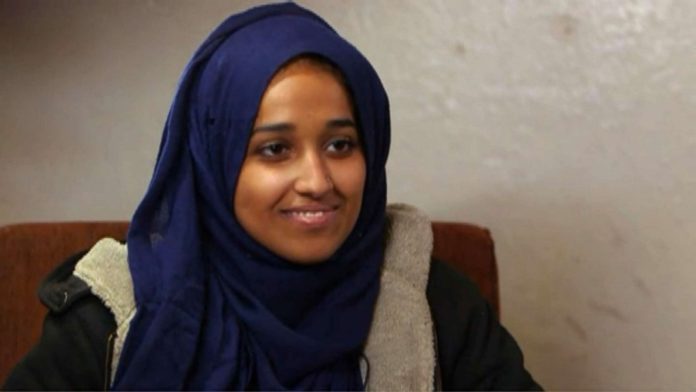Few suspected criminals volunteer to be considered for placement in a maximum security prison. But that is what a former Alabama resident has done. Hoda Muthana, who joined the Islamic State in 2014, is offering herself up to the virtual certainty of a long stay in the Graybar Hotel. The Trump administration, however, has rejected the offer.
Muthana, 24, now resides in a refugee camp in Syria with her toddler son after escaping from the terrorists she once embraced. After traveling to Syria to help the group wage war, she married an Islamic State fighter — under compulsion, she says. Her Twitter account urged the killing of President Barack Obama and other Americans, though her lawyer says others controlled the account.
She now says she was “ignorant” and “brainwashed” and expresses deep regret for what she did. Muthana wants to return to the United States to face justice, however stern. John Walker Lindh, who joined the Taliban and fought against U.S. allies in Afghanistan, got a 20-year sentence, some of which he has spent in the notorious supermax facility in Colorado.
But Donald Trump prefers permanent banishment. “I have instructed Secretary of State Mike Pompeo, and he fully agrees, not to allow Hoda Muthana back into the Country!” he tweeted. Pompeo affirmed that she “is not a U.S. citizen and will not be admitted into the United States.”
Muthana was born in New Jersey, and birth on American soil automatically confers U.S. citizenship — as Trump knows, because he wants to abolish that policy. The administration, however, claims that she falls into the sole exception provided in the 14th Amendment.
Children of foreign diplomats don’t qualify, because the amendment excludes them as not “subject to the jurisdiction” of the U.S. government. Muthana’s father was a Yemeni diplomat who originally came to serve at the U.N.
But that doesn’t necessarily matter. Her lawyer has produced documentation that her father left the diplomatic corps nearly two months before she was born and became a permanent resident, making her eligible for birthright citizenship. (The family later moved to Hoover, Alabama, where she grew up.)
This should not come as news to the State Department. New York Times correspondent Rukmini Callimachi reported that “when Muthana first received her US passport when she was a child, her father was asked to produce proof that he had been discharged from his diplomatic post. Authorities reviewed her case, says her family lawyer, and handed her not just her first passport but also her second.”
The State Department is contradicting a judgment it reached on two previous occasions — occasions when, unlike today, it had no ulterior motive to rule against her. The clear presumption is that Muthana is an American, deserving of the same protections as any other citizen. Those include the freedom to return to her native country, even if she may have committed crimes against it.
It’s possible the administration can demonstrate she wasn’t entitled to citizenship in the first place. But that determination should be made only after impartial consideration of the evidence, which is not what anyone would expect from this administration. Given Trump’s mode of operation, it’s fair to assume that the decision to exclude Muthana was reached first and the pretext devised later.
If she has committed crimes and remains dangerous, you would think the administration would be eager to repatriate her to face prosecution and imprisonment. If neither is true, you would think the administration would not be so adamant about rejecting her right to return.
People are sometimes recognized as U.S. citizens by mistake. But when mistakes are discovered, the usual practice of the government is to grant permanent resident status to those involved, not to expel them.
Yes, the Islamic State is a terrorist group that Muthana voluntarily joined. But Lindh did the same with the Taliban — and he was an active fighter, not the spouse of one. Like him, Muthana can be criminally charged for her activities on behalf of an enemy. All she wants is to submit to the decisions of our criminal justice system.
Interviewed on NPR, her lawyer Hassan Shibly was asked whether she is ready to go to prison for decades. “Absolutely,” he replied. “That’s what she’s asking for.”
Muthana is willing to trust our courts to decide her fate. The administration is not. That’s because both sides know who stands to gain from the law and the truth — and who stands to lose.






























